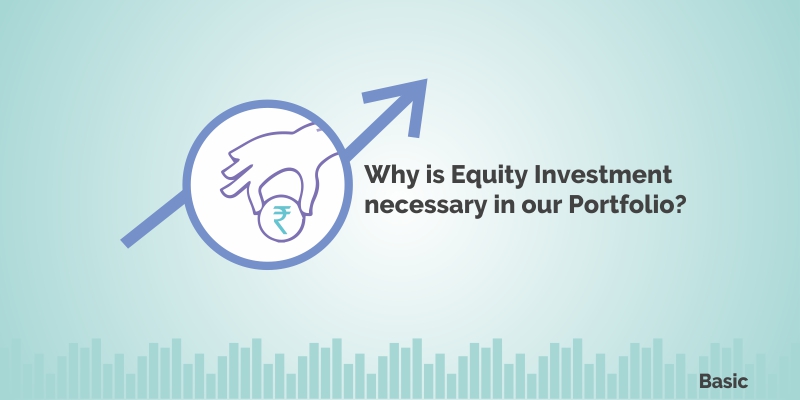Are you looking for a surefire way to secure your financial future and build wealth? Look no further than equity investments. But hold on – before you dive headfirst into the stock market, it’s crucial to understand the importance of equity in your investment portfolio. From diversification to long-term growth potential, there are myriad benefits to incorporating Equithy into your strategy. Join us as we explore why this asset class is so critical and how you can make the most of it in your own portfolio.
What is Equity?
Equity is one of the most important elements in an investment portfolio. Equity provides investors with a stake in the company and helps to protect them from losses in case of bankruptcy or other problems. In addition, equity can provide increased returns over time, which can add significantly to an investor’s return on investment (ROI).
There are a few different types of equity: common stock, preferred stock, and warrants. Common stock is the most common type of equity and includes voting rights and the right to receive dividends. Preferred stock is less common but offers investors additional benefits, such as a higher dividend yield than common stock and the right to vote after preferred shares have been converted into common stock. Warrants are another type of equity and allow an investor to purchase a certain number of shares at a fixed price over a set period of time. They also offer the potential for increased value if the company achieves specific financial goals.
Investors should consider all types of equity when making their investment decisions. Each has its own benefits and drawbacks, so it’s important to carefully weigh each before investing.
Types of Equity
There are many types of equity, and each has its own unique benefits. When choosing which type of equity to invest in, it is important to consider your individual investment goals and risk tolerance.
Here are the most common types of equity:
1) Stock: A stock is a physical piece of ownership in a company. When you buy a stock, you are investing in the future economic potential of that company.
2) Bond: A bond is a financial security that pays you periodic interest payments over time. Like stocks, bonds can also be bought and sold on an open market. However, bonds are less risky than stocks because they offer a fixed return (instead of the potential for increased profits or losses that comes with owning stocks).
3) Real Estate Investment Trust (REIT): A REIT is like a mutual fund made up of real estate assets. Unlike other types of investments, REITs are exempt from federal income taxes. This means that they offer investors high returns without having to worry about paying taxes on those returns down the line.
4) Commodity Futures Trading Commission (CFTC): CFTC-regulated commodities include precious metals such as gold and silver, agricultural products such as wheat and corn, oilseeds such as soybeans, and currencies such as the US dollar/euro exchange rate pair. These investments can be volatile and subject to price swings, but they also offer the potential for high returns if prices rise.
Why is Equity Important?
Equity is important because it’s a measure of how much ownership a person has in a company. When you have equity in a company, you are able to share in the upside and downside of its performance. This means that if the company grows quickly and makes lots of money, your share of the profits will be large.
However, if the company goes bankrupt or experiences other negative outcomes, your equity may be wiped out. Equity is also important because it gives investors some protection against losses. For example, if you own 10% of a company but that company goes bankrupt, your loss will only be 10% of your original investment (10% x $10,000 = $1,000).
Of course, Equity isn’t perfect: it can be volatile and risky. But overall, it’s an important part of any investment portfolio because it provides both upside potential and safety netting mechanisms.
How Does Equity Work in a Portfolio?
Equity is the principle of ownership in a company. When you invest in stocks, you are buying a share of the company. This means that you have a say in how it is run and can potentially make money if the company does well.
Some other things to consider when investing in stocks:
-It’s important to research the company thoroughly before investing. Make sure to read its financial statements and compare them to those of similar companies.
-Know your risk tolerance. Are you comfortable with the amount of risk involved in an investment? Some risks associated with stock investing include market volatility (the price of a stock can go up and down), investment losses (if you sell your shares before they’ve reached their full value), and taxes (stocks are usually taxable).
-Consider whether or not dividend payments will affect your overall return. Many companies pay out dividends every quarter, which gives shareholders a small percentage of the company’s profits. If you’re looking for stable returns, avoid investments that pay out dividends.
How to Calculate Your Risk Exposure with Equity
The concept of risk exposure is one that is important to understand when it comes to investing. In order to calculate your risk exposure, you first need to understand what equity is. Equity is a type of investment that represents a part ownership in a company or enterprise. This means that you are putting your money into something that could potentially make you money if the company does well.
When calculating your risk exposure, you want to think about how much of your portfolio is invested in equity. This will give you an idea of how much upside potential you have with your investments. You also want to think about how much risk there is associated with the equity investment. This includes things like stock market volatility and the chance that the company will go bankrupt.
Equity investments are a great way to invest because they offer a lot of upside potential and relatively low levels of risk. By understanding your risk exposure, you can make sure that the amount of equity that you put into your investment portfolio is appropriate for the level of risk that you are comfortable with
Conclusion
Equity is key to a successful investment strategy. When you own equity in a business, you are sharing in the upside (or profits) of that business while also taking on any associated risks. Equity ownership gives you a stake in the success of your investment, and it can help you feel more confident about your long-term financial prospects. While there are many different types of investments available, choosing an equity-based portfolio is one of the simplest and most effective ways to build wealth over time. So why not start incorporating more equity into your portfolio today?













